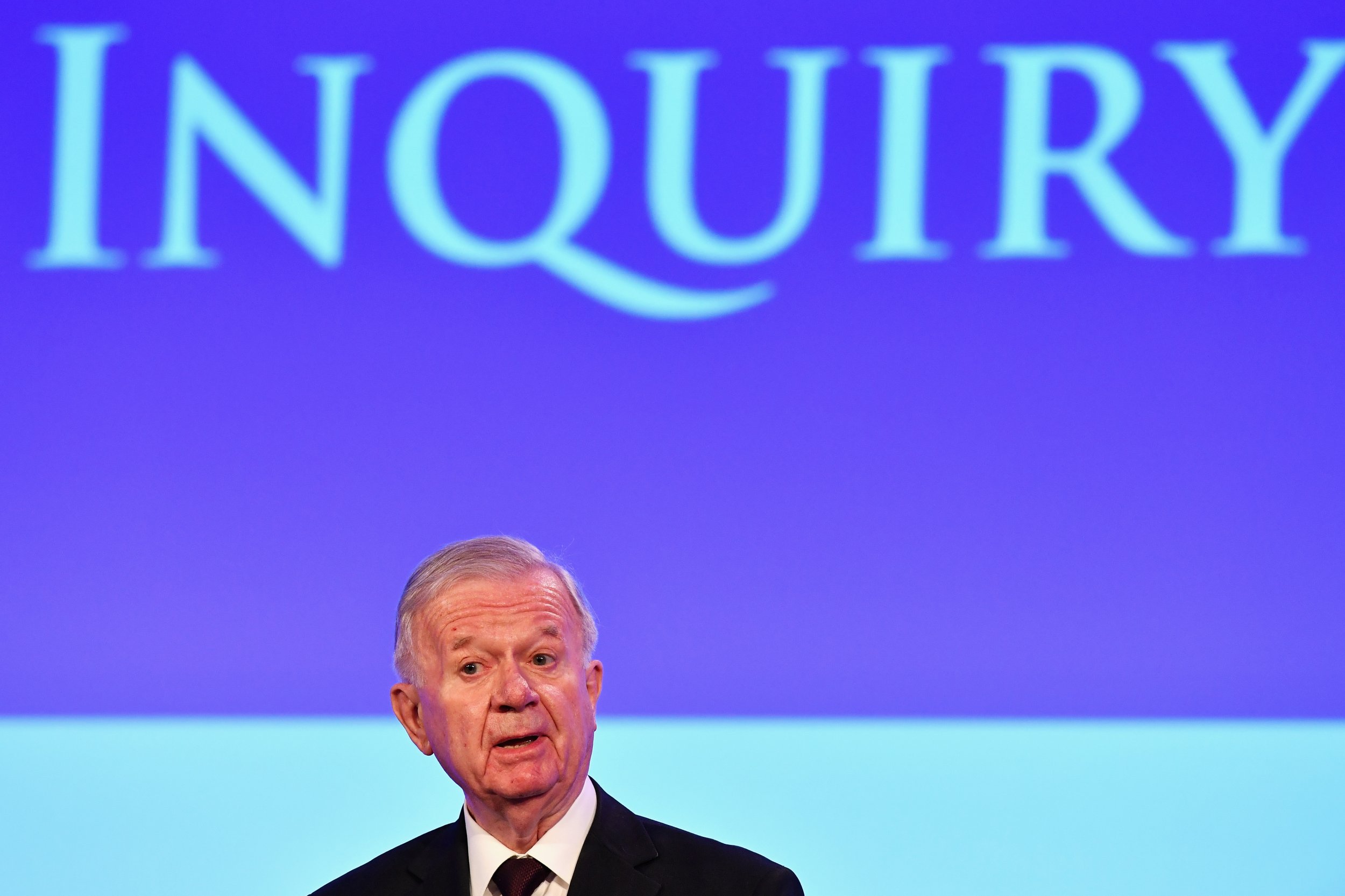
This morning, I stood in front of the Queen Elizabeth II Conference Centre in London waiting for Sir John Chilcot to make public his report into the Iraq war. A small crowd of a hundred demonstrators had gathered outside to protest on this beautiful sunny day. Thousands of miles away in Baghdad, Iraqis were still recovering bodies from the suicide bombing that killed over 250 people a few days earlier.
I had been one of the last to give evidence when I testified before the Chilcot Inquiry on 14 January 2011. I had explained that although I had been opposed to the war, I had responded, after the invasion in 2003, to the British government's request for volunteers to administer the country for three months before we handed it back to the Iraqis. I believed I had relevant expertise and experience from a decade's work of capacity building and conflict mediation in the Palestinian territories. And I wanted to apologize to Iraqis for the war and to help them rebuild their country.
Thirteen years ago, when I first set out for Iraq, I had no idea what to expect and did not know what my job would be. Within days of arrival I found myself appointed as the coalition's representative for Kirkuk province, and survived an assassination attempt. Nor had I envisioned that our intervention would lead to the deaths of 4,500 Americans, 179 Brits, and perhaps 200,000 Iraqis; that it would change the balance of power in the region in Iran's favour, leading to proxy wars; that it would create the chaotic conditions that enabled the rise of al-Qaeda in Iraq then its successor, ISIS; and that millions would be displaced from their homes, many seeking refuge in Europe.
The decisions taken by the coalition in 2003 to dismiss civil servants and to dissolve the security forces collapsed the state and led to civil war. It was only from 2007-2009 during the surge that the coalition had the right strategy, leadership and resources. The coalition brought all groups into the political process and helped strengthen the capacity of the state. But things fell apart again when the international community failed to uphold the results of the 2010 parliamentary election and the US rapidly disengaged.
The judgements in the Chilcot report are unambiguous. The report concluded that the UK "chose to join the invasion of Iraq before the peaceful options for disarmament had been exhausted. Military action at that time was not a last resort." In March 2003, Iraq did not pose an imminent threat and the strategy of containment could have continued. It also stated that the threat posed by Iraq's weapons of mass destruction were exaggerated. Furthermore, the report outlined how the planning for the aftermath of the overthrow was "woefully inadequate," and that the intervention "went badly wrong with consequences to this day."
The Chilcot Inquiry was commissioned seven years ago and the publication of its report was long delayed. It is not likely to put to rest the ghosts that haunt the UK's political establishment, nor restore public faith in the judgement of elected officials. However, despite its limitations, it represents a genuine commitment on behalf of the UK to investigate what happened so as to better understand what went wrong during the Iraq war and to learn lessons. Parliament will discuss the 2.6 million word report over two days next week.
I hope that the Chilcot report ensures we never witness a repeat of the mistakes made in Iraq. That is the best way we honor the lives that were lost.
Emma Sky is the author of The Unraveling: High Hopes and Missed Opportunities in Iraq. She served in Iraq from 2003 to 2004 as the governorate coordinator of Kirkuk, and from 2007 to 2010 as political adviser to General Raymond T. Odierno, the commanding general of U.S. Forces in Iraq.
Uncommon Knowledge
Newsweek is committed to challenging conventional wisdom and finding connections in the search for common ground.
Newsweek is committed to challenging conventional wisdom and finding connections in the search for common ground.
About the writer
To read how Newsweek uses AI as a newsroom tool, Click here.








